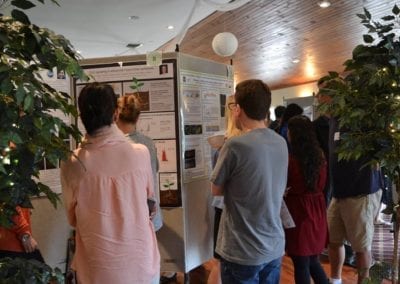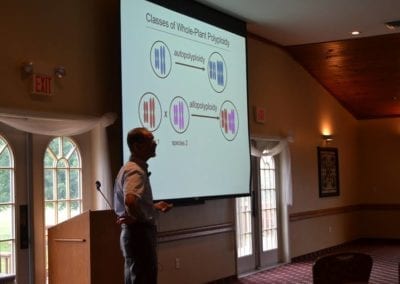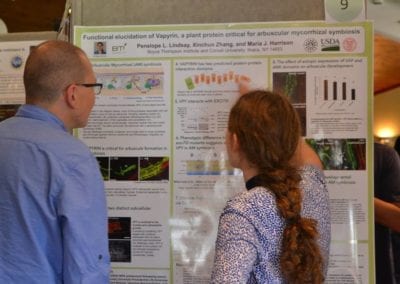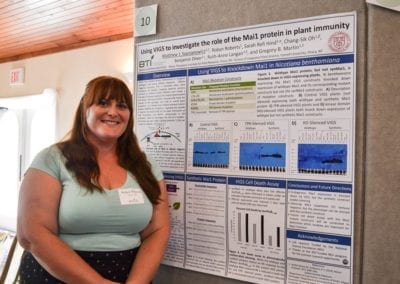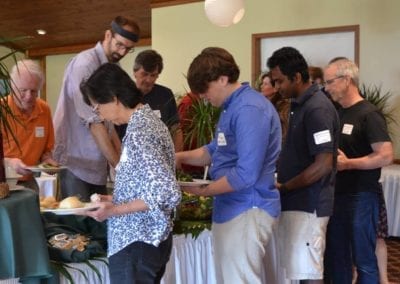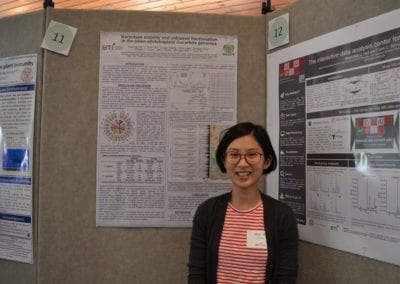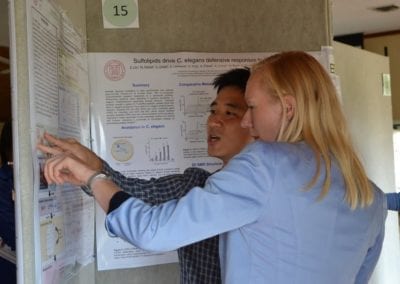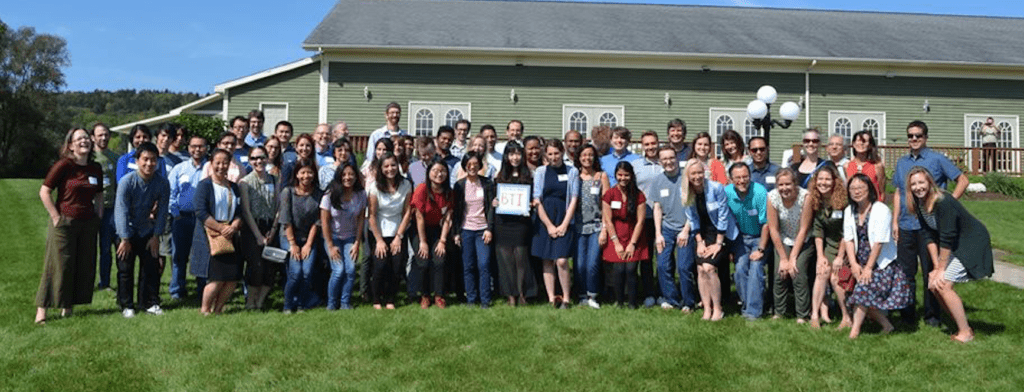
Understanding plant development and evolution is critical to combating increasingly relevant issues that impact human health and global food supply. These were the subject of many of the presentations and discussions at this year’s BTI Science Symposium, held at Celebrations in Ithaca on September 21st, 2017.
Organized by BTI’s Postgraduate Society (PGS), this annual symposium featured a jam-packed program with representation from more than 10 BTI research groups and affiliated projects. This year’s symposium provided BTI faculty, staff, students, and project partners the opportunity to exchange ideas and to learn more about the work of their colleagues. The day’s events spanned multiple disciplines including plant biology, genomics, soil science, chemistry, and more.
PGS Co-Chairs Lena Mueller and Kitty Zhang delivered opening remarks before introducing Jeff Doyle, the first of four guest speakers. Doyle (Professor, Cornell School of Integrative Plant Science [SIPS]) kicked off the day with a presentation entitled, “Perspectives on the Prevalence Pattern, and Process of Plant Polyploidy.”
Guarav Moghe (SIPS Assistant Professor, Plant Biology section) followed with a discussion of biochemical novelties in plants and their origins. Incorporating biochemistry, bioinformatics, and molecular biology, Moghe discussed how interdisciplinary approaches help to foster discoveries in plant diversity and relevant metabolites.
The annual PGS poster session got people out of their seats and walking around. Attendees had an opportunity to speak with grad students and postdocs and vote for their top three posters. Posters covered topics from genomic data, pathogens and resistance, and other fundamental research projects, to computational
resources and services available for scientists in and around BTI.
“The poster session fostered positive interactions that could lead to collaboration among BTI labs in the future,” according to Symposium Organizer/PGS Member Ning Zhang. 17 posters in total were presented.
The mid-day break featured a buffet lunch and lawn games before the group convened again for a few fun rounds of partner charades. In a close tie, BTI postdoc Lena Mueller and graduate student Penelope Lindsay walked away with the grand prize. The winning posters were announc
ed shortly after: first place went to Alexa Schmitz (Harrison Lab), second place to Shan Wu (Fei Lab), and third place to Lorena Chaves (Blissard Lab).
In the afternoon, BTI Board Member Susan McCouch (SIPS Professor, Plant Genetics and Breeding section) incorporated both historic and scientific data in a comprehensive presentation on the domestication and evolution of rice in Asia. The symposium concluded with a presentation on bacterial nitrification by Kyle Lancaster (Assistant Professor, Cornell Department of Chemistry).
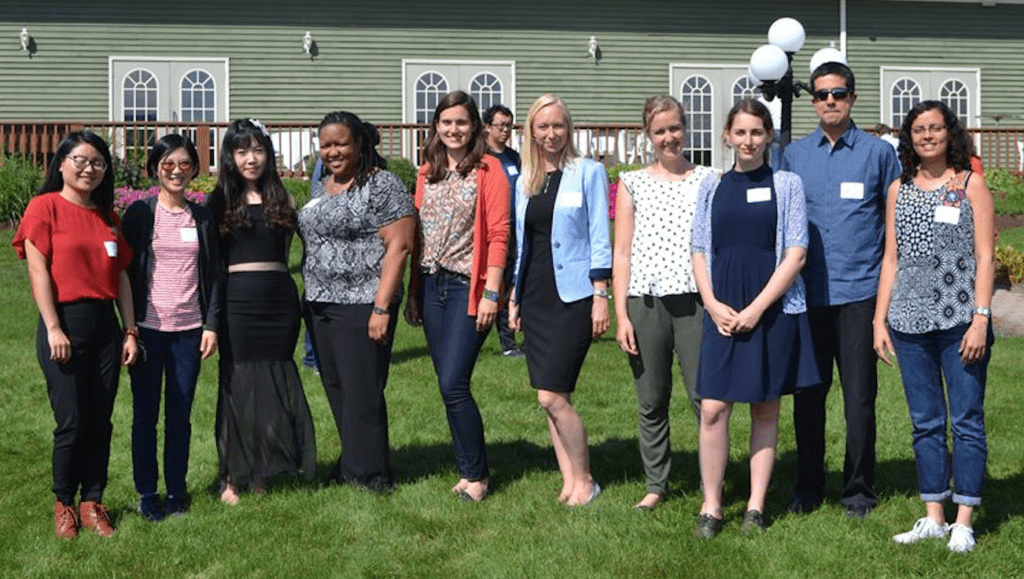
PGS members (left to right): Ning Zhang, Shan Wu, Kitty Zhang, Endia Blunt, Annett Richter, Lena Muller, Penelope Lindsay, Armando Bravo, and Emeline Sautron.
PGS Co-Chair Kitty Zhang said she was “proud to see different Cornell departments represented at the symposium.” Zhang, along with other members of PGS, hope to maintain the involvement of diverse fields of study at PGS events in the future. “It’s beneficial for the BTI community to think as chemists and also gives Kyle the opportunity to communicate with biologists,” said Zhang in reflection on Lancaster’s talk.
This year’s planning team included Kitty Zhang, Shan Wu, Annett Richter, Julia Miller and Endia Blunt. “I’m proud of the planning team for their hard work and high efficiency. Everyone made great efforts to make the event run smoothly,” said Zhang.
BTI would like to thank Laboratory Product Sales for supporting this year’s symposium.
Jeff Doyle, the first of four guest speakers, giving a presentation entitled “Perspectives on the Prevalence Pattern, and Process of Plant Polyploidy.”
Shan Wu pictured in front of her poster during the symposium poster session. Wu’s poster came in second place in the poster contest.

